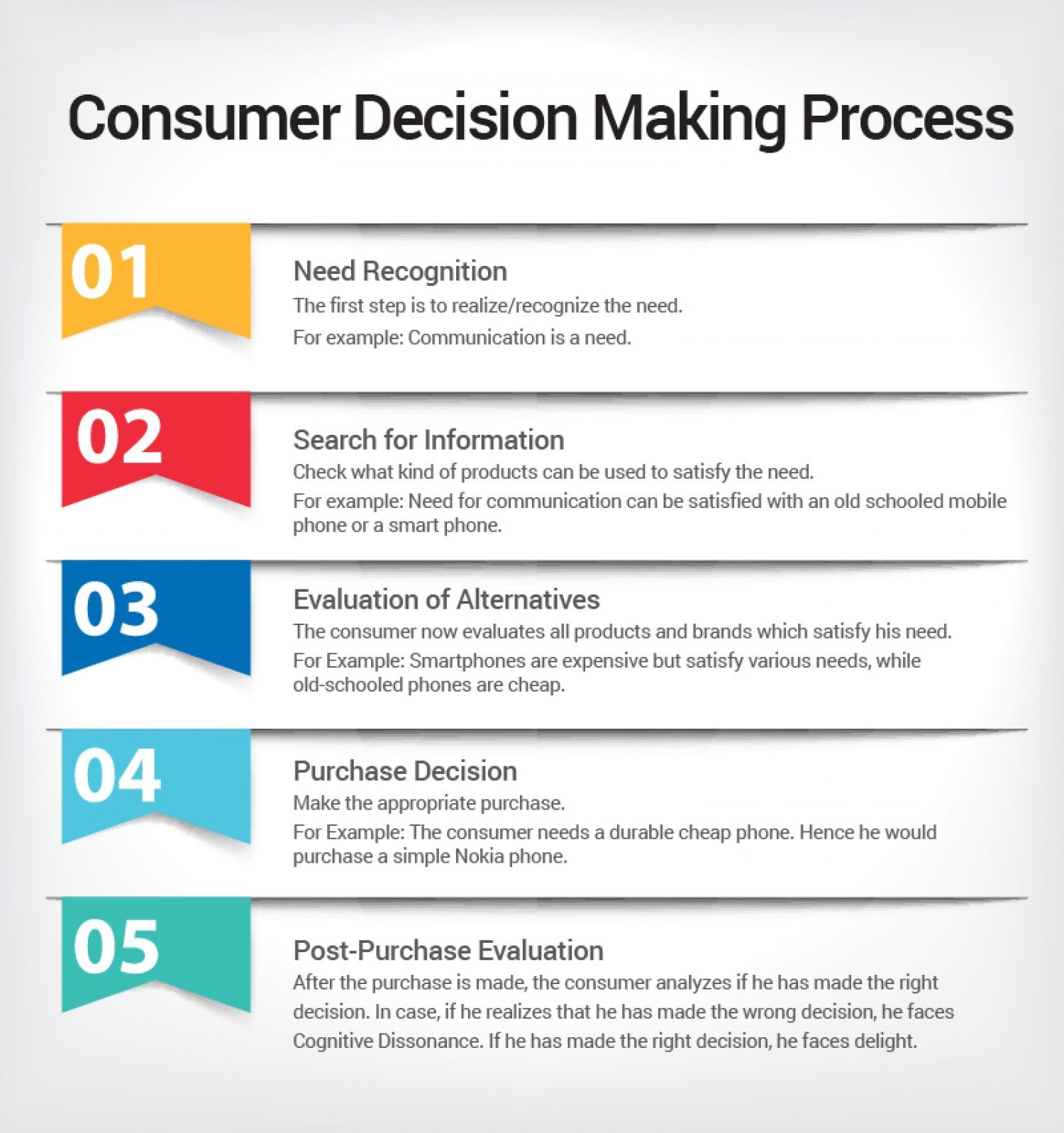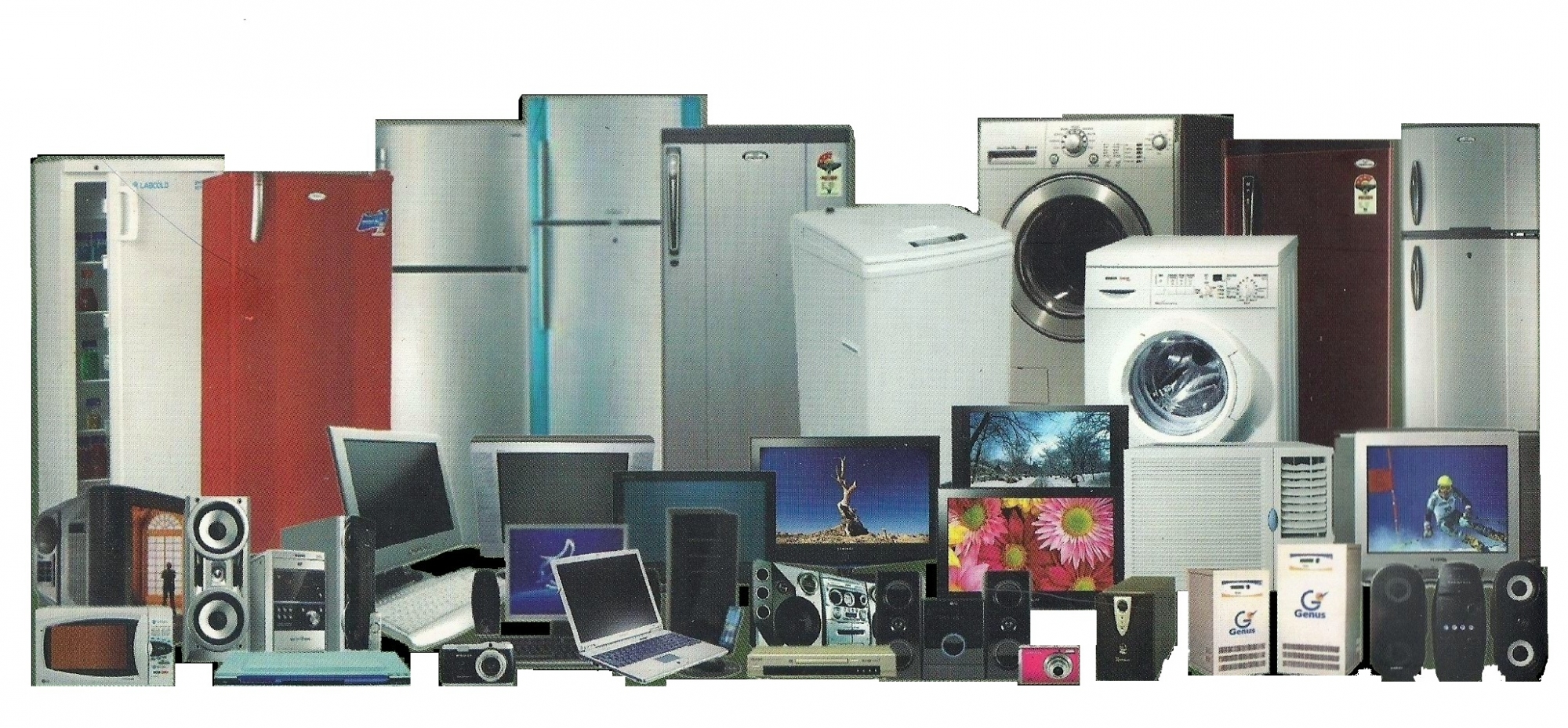What Are Consumer Durables?
Consumer durables, also known as durable goods, encompass a wide range of products that are specifically designed to endure prolonged use over time. These goods are primarily intended for personal or household utilization.
Unlike perishable or consumable items that are quickly depleted or consumed, consumer durables possess an extended lifespan, making them a valuable investment. They are meticulously crafted to withstand regular usage, resist wear and tear, and maintain optimal functionality throughout an extended period of time. This remarkable longevity is achieved through the implementation of durable materials, sophisticated engineering techniques, and innovative technologies.
How Does The Consumer Durables Field Work?
The consumer durables field operates through a combination of manufacturing, distribution, and retail processes. Here’s a general overview of how the consumer durables field works:
- Research and Development:
- Consumer durables companies invest heavily in research and development (R&D) to innovate and meet evolving consumer demands. This involves thorough market research, prototype design, and rigorous testing to ensure functionality, durability, and user satisfaction. By prioritizing R&D, these companies stay ahead of the competition and deliver cutting-edge solutions that capture the market’s attention.
- Manufacturing:
- Once the product designs are finalized, consumer durables are manufactured on a large scale. Manufacturers set up production facilities where raw materials and components are sourced, and the products are assembled or fabricated. Quality control processes are implemented to maintain high standards and ensure that the products meet safety regulations.
- Distribution:
- After manufacturing, consumer durables are distributed through various channels. Manufacturers may have their own distribution networks or work with wholesalers and distributors to reach retailers. Distribution channels may involve warehouses, logistics operations, and transportation to ensure the products reach their destinations efficiently.
- Retail:
- Consumer durables are made available to consumers through retail outlets. This can include physical stores, online marketplaces, and authorized dealerships. Retailers stock and display the products, provide customer assistance, and facilitate sales transactions. They may also offer after-sales services such as warranties, repairs, and product support.
- Marketing and Promotion:
- Consumer durables companies employ diverse marketing and advertising strategies to enhance product visibility, generate demand, and promote their offerings. These strategies encompass both traditional and digital channels, ensuring a broader reach. Traditional marketing platforms like television, radio, and print media remain influential. Concurrently, digital marketing techniques such as social media campaigns, online advertising, and partnerships with influencers are gaining prominence. By leveraging these approaches, companies effectively engage with their target audience, driving brand awareness and attracting consumer interest in the competitive consumer durables market.
- Marketing efforts in the consumer durables industry focus on emphasizing the unique features, benefits, and selling points of their products. Through strategic highlighting, companies aim to attract the attention of potential customers and differentiate themselves from competitors. By utilizing a combination of traditional and digital marketing approaches, companies can effectively engage diverse consumer segments, boost brand visibility, and drive sales in the competitive consumer durables market.
- Customer Support and Service:
- Consumer durables companies prioritize customer support services to address product inquiries, troubleshooting, and warranty claims. They offer dedicated customer service teams, online support portals, and service centers to assist consumers promptly and efficiently. Ensuring timely and effective customer support is crucial in the consumer durables industry to foster customer satisfaction and build brand loyalty.
In the consumer durables industry, effective customer support is essential for ensuring customer satisfaction and building brand loyalty. Companies focus on providing innovative and high-quality products that align with evolving consumer preferences. They continually enhance their offerings in response to market trends, technological advancements, and competitive dynamics.

Differences Between Consumer Durable and Non-Durables?
Consumer durables and non-durables are two categories of goods that have distinct characteristics. Here are the differences between consumer durables and non-durables:
- Definition:
- Consumer durables are a category of goods specifically engineered to have a prolonged lifespan, designed for personal or household use. These products are often priced higher than everyday items and aim to offer extended functionality and satisfaction to consumers over an extended period.
- Non-durables, also referred to as consumables, are goods that are quickly consumed or used up. These products have a relatively short lifespan and are typically priced lower compared to consumer durables. Examples of non-durables include perishable food items, disposable products, and consumable goods that are regularly replenished..
- Lifespan:
- Consumer durables are characterized by their extended lifespan, as they are built to endure regular usage, withstand wear and tear, and maintain optimal functionality over a prolonged period. This category encompasses a wide range of products such as electronics, appliances, furniture, and sporting goods. These items are specifically engineered to provide lasting utility and satisfaction to consumers.
- Non-durables, in contrast to consumer durables, have a short lifespan and are typically designed to be used up or consumed in a single or limited number of uses. Examples of non-durable goods include food and beverages, toiletries, cleaning products, and office supplies. These items are intended for immediate consumption or usage and are not built to withstand long-term use or wear and tear.
- Price and Value:
- Consumer durables are typically priced higher than non-durables due to their extended lifespan and often superior quality. They are regarded as long-term investments that offer value over time. Consumers are willing to pay a premium for these goods, considering their durability and the prolonged utility they provide.
- Non-durables are generally more affordable compared to consumer durables and are commonly purchased as recurring necessities. These goods offer immediate utility but lack the same long-term value as consumer durables. Consumers frequently replenish non-durable items due to their shorter lifespan and regular consumption.
- Purchase Frequency:
- Consumer durables are typically purchased less frequently compared to non-durables. Consumers tend to make more thoughtful and considered decisions when investing in consumer durables due to their higher cost and longer-term impact on their lives. The extended lifespan and higher price of consumer durables necessitate careful consideration to ensure they meet the specific needs and preferences of the consumer.
- Non-durables are regularly purchased as they are quickly consumed or depleted. These goods are frequently bought by consumers to fulfill their immediate needs. Due to their limited lifespan, non-durables are regularly replenished to ensure a continuous supply of essential items.
- Examples:
- Consumer durables encompass a wide range of products, including televisions, refrigerators, furniture, smartphones, and home appliances. These items are designed to offer extended functionality and are intended for personal or household use. Consumer durables often involve significant investments due to their long-term utility and higher quality construction.
- Non-durables comprise various items such as food and beverages, personal care products, cleaning supplies, and stationery items. These goods are typically consumed or used up relatively quickly and require regular replenishment. Non-durables cater to immediate needs and are essential for day-to-day living and maintenance.
Having a clear understanding of the distinctions between consumer durables and non-durables is beneficial for managing purchasing decisions, budgeting, and comprehending the unique attributes of goods in terms of their lifespan, price, and frequency of purchase. This knowledge enables consumers to make informed choices, allocate their resources effectively, and recognize the varying dynamics associated with different types of products.
What Are Some Examples of Consumer Durables Goods?

Electronics:
- Televisions
- Home theater systems
- Audio equipment (e.g., speakers, soundbars)
- Computers (desktops, laptops)
- Smartphones and tablets
- Gaming consoles
- Home appliances (e.g., refrigerators, washing machines, dishwashers, air conditioners)
- Personal electronic devices (e.g., cameras, headphones, smartwatches)
Kitchen Appliances:
- Ovens and stoves
- Microwave ovens
- Dishwashers
- Refrigerators and freezers
- Coffee makers
- Blenders and food processors
- Toasters and sandwich makers
- Electric kettles
Home Furniture and Decor:
- Sofas and couches
- Dining tables and chairs
- Beds and mattresses
- Wardrobes and cabinets
- Desks and office furniture
- Lighting fixtures
- Rugs and carpets
- Curtains and blinds
Personal Care Products:
- Hair dryers and straighteners
- Electric toothbrushes
- Shavers and trimmers
- Skincare devices
- Makeup tools and accessories
- Massage chairs or devices
- Personal grooming kits
Sporting Goods:
- Fitness equipment (treadmills, exercise bikes, dumbbells)
- Sports gear (racquets, balls, bats, helmets)
- Outdoor equipment (tents, camping gear, backpacks)
- Bicycles and accessories
- Gymnastics and yoga mats
- Sports apparel and footwear
Home Improvement Tools:
- Power tools (drills, saws, sanders)
- Hand tools (screwdrivers, wrenches, hammers)
- Lawn and garden equipment
- Paint and painting supplies
- Plumbing fixtures
- Electrical equipment and accessories
These examples cover a broad range of consumer durables goods across various categories. They are designed to provide long-term use and enhance everyday living experiences.
The Best Choice for the Protection and Safety of Your Home
Pros of The Consumer Durables Field
The consumer durables field offers several advantages for businesses and consumers alike. Here are some pros of the consumer durables field:
- Long-Term Revenue Generation: Consumer durables, with their higher price points, present businesses with the potential for increased revenue. These products are viewed as long-term investments by consumers, who are willing to pay more for quality, durability, and advanced features. As a result, companies can enjoy higher profit margins and sustained revenue streams from the sale of consumer durables.
- Brand Loyalty and Repeat Purchases: Strong brands in the consumer durables field can build customer loyalty. When consumers have positive experiences with durable products, they are more likely to repurchase from the same brand in the future. This brand loyalty can lead to repeat purchases and customer advocacy, contributing to long-term business success.
- Innovation and Technological Advancements: The consumer durables industry thrives on ongoing innovation and technological advancements. Companies dedicate resources to research and development, aiming to introduce new features, functionalities, and cutting-edge technologies in their products. This fosters competition, drives market growth, and ultimately improves the overall consumer experience. By staying at the forefront of innovation, companies can meet evolving consumer demands and maintain a competitive edge in the market.
- Employment Opportunities: The consumer durables industry generates a wide range of job opportunities across multiple sectors. From manufacturing and production to distribution, retail, marketing, and customer service, a diverse workforce is required to support the industry. The growth of this sector can contribute to job creation and economic development in both developed and emerging markets, providing employment opportunities for individuals and driving overall economic prosperity.
- Improved Quality of Life: Consumer durables play a crucial role in enhancing the quality of life for consumers. These products offer convenience, comfort, and improved lifestyle experiences. Whether it’s a top-notch television for entertainment, efficient home appliances for daily chores, or innovative personal care devices, consumer durables contribute to making life easier, more enjoyable, and efficient. By providing reliable and advanced solutions, these products positively impact the overall well-being and satisfaction of individuals, enhancing their daily routines and overall quality of life.
- Market Stability: The demand for consumer durables exhibits a relatively stable pattern, even during economic fluctuations. While consumers may postpone purchases during challenging times, the essential need for durable products remains. This stability offers a degree of predictability for businesses operating in the consumer durables industry, enabling them to plan and adapt their strategies accordingly. This resilience in demand allows companies to navigate economic uncertainties more effectively and maintain a steady business trajectory.
These advantages underscore the opportunities and benefits associated with the consumer durables industry. They include the potential for revenue generation, the cultivation of brand loyalty, the drive for innovation, the creation of employment opportunities, the improvement of quality of life, and the stability of the market. These factors contribute to the overall appeal and growth prospects of the consumer durables field.
Cons of The Consumer Durables Field
While the consumer durables field has numerous advantages, there are also some potential drawbacks to consider. Here are some cons of the consumer durables field:
- High Competition: The consumer durables industry is highly competitive, with numerous companies vying for market share. This competition can lead to pricing pressures, reduced profit margins, and the need for constant innovation to stay ahead. Companies must invest in marketing, branding, and product differentiation strategies to stand out in a crowded market.
- Rapid Technological Obsolescence: Technological advancements occur at a rapid pace in the consumer durables field. As new technologies emerge, older products can quickly become outdated or less desirable. Companies must keep up with these advancements and invest in research and development to ensure their products remain competitive. Failure to do so can result in a decline in market demand and loss of market share.
- Consumer Price Sensitivity: While consumer durables often come with higher price tags, consumers can also be price-sensitive and seek value for their money. Economic downturns or changes in consumer spending habits can impact the willingness of consumers to make significant purchases in the consumer durables sector. Companies must be mindful of price sensitivity and adapt their pricing and marketing strategies accordingly.
- After-Sales Service and Support: Consumer durables may require after-sales service, maintenance, or repairs. Providing comprehensive customer support can be challenging for companies, particularly when dealing with complex products or managing service networks. Ensuring timely and efficient after-sales service is crucial for maintaining customer satisfaction and loyalty.
- Environmental Impact: The production and disposal of consumer durables can have environmental consequences. Manufacturing processes may consume significant resources and contribute to pollution. Additionally, the disposal of old or obsolete products can generate electronic waste. Companies in the consumer durables field need to prioritize sustainable practices, such as eco-friendly manufacturing, recycling programs, and responsible waste management.
- Economic Dependence: The consumer durables industry can be influenced by economic factors, such as changes in consumer purchasing power, interest rates, and economic recessions. During economic downturns, consumers may delay or reduce discretionary spending on durable goods, impacting the industry’s growth and profitability.
It is important for companies in the consumer durables field to navigate these challenges effectively to maintain competitiveness, adapt to changing consumer preferences, and prioritize sustainability practices.
What are the job opportunities available in the consumer durables field, and what is the average pay range for these jobs?

- The consumer durables field offers diverse job opportunities across sectors such as manufacturing, research and development, sales and marketing, distribution and logistics, retail, and customer service.
- Salaries in the consumer durables industry vary based on factors like job position, experience, location, and industry segment.
- Manufacturing and production roles encompass a wide salary range, from entry-level positions to higher-paying skilled positions.
- Research and development positions generally command higher salaries due to the specialized skills required.
- Sales and marketing roles often include a combination of base salary and performance-based incentives, such as commissions or bonuses.
- Compensation in distribution and logistics can vary depending on the level of responsibility within warehouse operations, transportation, or supply chain management.
- Retail and customer service roles typically have hourly wages or a combination of hourly rates and incentives.
- It’s important to note that specific salary figures can vary significantly, so researching industry salary surveys and job listings can provide more accurate and up-to-date information.
The Advantages of Buying Certified Pre-Owned Cars from a Dealership
Is Consumer Durables A Good Career Path?
The consumer durables field can offer a rewarding career path for individuals with the right skills, interests, and aspirations. Here are some factors to consider when assessing whether consumer durables is a good career path:
- Industry Growth: The consumer durables industry has shown consistent growth over the years, driven by technological advancements, changing consumer preferences, and increasing disposable income. This growth can create a range of career opportunities in various sectors within the industry.
- Job Diversity: The consumer durables field encompasses a wide range of job roles, including manufacturing, research and development, sales and marketing, distribution, retail, customer service, and more. This diversity allows individuals to explore different career paths and find roles that align with their interests, skills, and aspirations.
- Innovation and Advancement: Consumer durables is an industry characterized by continuous innovation and technological advancements. This provides opportunities for professionals to work on cutting-edge products, contribute to product development and improvement, and stay at the forefront of industry trends.
- Transferable Skills: Many skills acquired in the consumer durables field are transferable across industries. Skills such as problem-solving, project management, communication, and teamwork can be valuable in other sectors, offering flexibility and career mobility.
- Global Opportunities: The consumer durables industry is global in nature, with companies operating internationally and serving diverse markets. This can present opportunities for professionals to work in different countries, experience different cultures, and gain a global perspective.
- Job Stability: The demand for consumer durables tends to be relatively stable, even during economic downturns. While there may be fluctuations in consumer spending, the need for durable goods remains. This stability can provide a certain level of job security compared to industries that are more susceptible to economic volatility.
It’s important to note that individual preferences, skills, and career goals play a significant role in determining whether consumer durables is a good career path for someone. Assessing personal interests, gaining relevant education or training, and staying updated with industry trends can help individuals make informed decisions about pursuing a career in the consumer durables field.
What Companies Are in The Consumer Durables Field?
The consumer durables field is broad and encompasses various companies operating in different sectors. Here are some notable companies that are active in the consumer durables industry:
Electronics:
- Televisions
- Home theater systems
- Audio equipment (e.g., speakers, soundbars)
- Computers (desktops, laptops)
- Smartphones and tablets
- Gaming consoles
- Home appliances (e.g., refrigerators, washing machines, dishwashers, air conditioners)
- Personal electronic devices (e.g., cameras, headphones, smartwatches)
Kitchen Appliances:
- Ovens and stoves
- Microwave ovens
- Dishwashers
- Refrigerators and freezers
- Coffee makers
- Blenders and food processors
- Toasters and sandwich makers
- Electric kettles
Home Furniture and Decor:
- Sofas and couches
- Dining tables and chairs
- Beds and mattresses
- Wardrobes and cabinets
- Desks and office furniture
- Lighting fixtures
- Rugs and carpets
- Curtains and blinds
Personal Care Products:
- Hair dryers and straighteners
- Electric toothbrushes
- Shavers and trimmers
- Skincare devices
- Makeup tools and accessories
- Massage chairs or devices
- Personal grooming kits
Sporting Goods:
- Fitness equipment (treadmills, exercise bikes, dumbbells)
- Sports gear (racquets, balls, bats, helmets)
- Outdoor equipment (tents, camping gear, backpacks)
- Bicycles and accessories
- Gymnastics and yoga mats
- Sports apparel and footwear
Home Improvement Tools:
- Power tools (drills, saws, sanders)
- Hand tools (screwdrivers, wrenches, hammers)
- Lawn and garden equipment
- Paint and painting supplies
- Plumbing fixtures
- Electrical equipment and accessories
These examples cover a broad range of consumer durables goods across various categories. They are designed to provide long-term use and enhance everyday living experiences.
Best-Paying Jobs in Consumer Durables
The consumer durables industry offers a range of job opportunities with varying salary levels. Here are some of the best-paying jobs in the consumer durables field:
- Research and Development (R&D) Manager: R&D managers play a crucial role in driving innovation and product development within the consumer durables industry. They oversee research initiatives, manage teams of engineers and scientists, and ensure the successful implementation of new technologies and features. R&D managers often earn competitive salaries due to the level of expertise and responsibility involved.
- Sales Manager: Sales managers are responsible for leading sales teams, developing sales strategies, and driving revenue growth. They work closely with key clients, establish sales targets, and monitor performance. Sales managers in the consumer durables industry can earn attractive salaries, often with additional incentives tied to achieving sales targets and generating business opportunities.
- Product Manager: Product managers are responsible for overseeing the entire lifecycle of consumer durables, from ideation and development to launch and marketing. They collaborate with cross-functional teams, conduct market research, define product features, and develop pricing strategies. Product managers typically earn competitive salaries due to their integral role in driving product success.
- Supply Chain Manager: Supply chain managers play a vital role in optimizing the flow of goods, managing logistics, and ensuring efficient operations throughout the consumer durables supply chain. They coordinate with suppliers, oversee inventory management, and streamline distribution processes. Due to their strategic importance, supply chain managers can command high salaries, especially in larger organizations.
- Marketing Manager: Marketing managers develop and execute marketing strategies to promote consumer durables, enhance brand awareness, and drive customer engagement. They oversee advertising campaigns, digital marketing initiatives, and market research. Marketing managers with a specialization in consumer durables can earn competitive salaries, particularly in larger companies with significant marketing budgets.
- Industrial Designer: Industrial designers are responsible for creating visually appealing and functional product designs in the consumer durables field. They combine artistic and technical skills to develop product concepts, conduct research, create prototypes, and collaborate with engineering teams. Experienced industrial designers with a strong track record of successful product designs can earn high salaries.
It’s important to note that the salary levels mentioned can vary depending on factors such as industry segment, company size, location, and individual experience. Additionally, salaries may also include additional benefits, bonuses, or commission structures. Conducting thorough research, staying updated on industry trends, and gaining relevant skills and experience can help individuals pursue and excel in these high-paying jobs within the consumer durables field.
What are the latest trends in the consumer durables field?
The consumer durables field is continually evolving, driven by technological advancements, changing consumer preferences, and market dynamics. Here are some of the latest trends shaping the consumer durables industry:
- Smart Home Technology: Smart home technology has gained significant momentum in recent years. Consumer durables such as appliances, thermostats, lighting systems, security devices, and entertainment systems are now equipped with connectivity and automation features. Integration with voice assistants and smartphone applications allows users to control and monitor their homes remotely, leading to increased convenience, energy efficiency, and customization options.
- Sustainable and Eco-Friendly Products: There is a growing demand for consumer durables that prioritize sustainability and eco-friendliness. Manufacturers are focusing on developing products with energy-efficient features, using recycled materials, reducing waste during production, and ensuring proper disposal and recycling options. Consumers are increasingly conscious of their environmental impact, driving the adoption of more sustainable choices in the consumer durables sector.
- Connected and Integrated Experiences: Consumers now expect seamless integration and connectivity among their devices. Consumer durables are being designed to offer connected experiences, allowing devices to communicate with each other and provide enhanced functionalities. For example, smart TVs can sync with smartphones and other smart devices to enable content sharing and personalized recommendations.
- Personalization and Customization: The trend of personalization has extended to the consumer durables field. Manufacturers are offering customizable options, allowing customers to tailor product features, colors, and designs to their preferences. This trend caters to the growing desire for unique, personalized products that reflect individual lifestyles and tastes.
- Health and Wellness Focus: The COVID-19 pandemic has heightened the emphasis on health and wellness. Consumer durables that promote health, hygiene, and well-being have gained significant traction. This includes air purifiers, water purifiers, fitness trackers, smartwatches with health monitoring features, and home gym equipment. The integration of health-focused technologies into consumer durables aims to enhance the overall wellness of individuals and households.
- Voice and Gesture Control: Voice and gesture control technologies are transforming the way consumers interact with consumer durables. Devices equipped with voice assistants, such as Amazon Alexa or Google Assistant, allow users to control various functions through voice commands. Gesture recognition technology enables touchless interaction with devices, offering convenience and hygiene benefits.
- Subscription and Rental Models: Consumer durables companies are exploring alternative business models such as subscription services and rental programs. These models allow customers to access products without the need for upfront purchases, providing flexibility and affordability. Subscription-based services for home appliances, furniture, and electronics enable consumers to enjoy the latest technologies without long-term commitments.
It’s important to note that these trends are constantly evolving, and new innovations are emerging regularly. Staying updated with industry news, attending trade shows, and monitoring consumer behavior can help individuals and businesses identify and capitalize on the latest trends in the dynamic consumer durables field.
What companies are in the consumer non-durables field?
The consumer non-durables field encompasses a wide range of companies that manufacture and sell products with a shorter lifespan or intended for immediate consumption. These products are typically used up or replaced relatively quickly. Here are some examples of companies in the consumer non-durables field:
Procter & Gamble:
Procter & Gamble is a multinational consumer goods corporation that produces a wide range of non-durable products, including personal care items, cleaning agents, and over-the-counter drugs. Some of their popular brands include Pampers, Tide, Gillette, and Crest.
Unilever:
Unilever is another global consumer goods company known for its non-durable products. They offer a diverse portfolio of brands across various categories, such as home care, personal care, food and beverages, and refreshments. Well-known brands under the Unilever umbrella include Dove, Lipton, Axe, and Knorr.
The Coca-Cola Company:
The Coca-Cola Company is a leading beverage company that specializes in non-alcoholic beverages. They offer a wide range of carbonated soft drinks, juices, energy drinks, and bottled water. Coca-Cola, Sprite, Fanta, and Dasani are some of their popular brands.
PepsiCo:
PepsiCo is a multinational food and beverage company that operates in the consumer non-durables sector. They produce a variety of snacks, carbonated beverages, and other non-alcoholic beverages. Their well-known brands include Pepsi, Lay’s, Gatorade, Tropicana, and Quaker.
Nestlé:
Nestlé is a Swiss multinational company that is one of the largest food and beverage companies globally. They offer a wide range of non-durable consumer products, including baby food, dairy products, chocolate, coffee, and bottled water. Some of their popular brands include KitKat, Nescafé, Maggi, and Purina.
Kimberly-Clark:
Kimberly-Clark is a global company that focuses on personal care and hygiene products. They manufacture and market non-durable items such as tissue paper, diapers, feminine care products, and healthcare products. Their brands include Kleenex, Huggies, Scott, and Kotex.
Colgate-Palmolive:
Colgate-Palmolive is a multinational consumer products company specializing in oral care, personal care, and home care products. They offer non-durable items such as toothpaste, toothbrushes, soaps, and cleaning agents. Colgate, Palmolive, and Softsoap are among their well-known brands.
These are just a few examples of companies operating in the consumer non-durables field. The industry is diverse and includes numerous other companies that produce and distribute various non-durable consumer goods across different categories.
What are the four 4 major classifications of the consumer products?
The four major classifications of consumer products are as follows:
- Convenience Products: Convenience products are everyday items that consumers purchase frequently and with minimal effort. They are widely available and affordable, and consumers often buy them without much thought or comparison shopping. Examples include basic household items like bread, milk, toiletries, and newspapers.
- Shopping Products: Shopping products are items that consumers purchase after comparing different options based on price, quality, features, and style. Consumers are willing to invest more time and effort into the decision-making process for shopping products. Examples include clothing, electronics, furniture, and appliances.
- Specialty Products: Specialty products are unique or specific items that consumers actively seek out due to their distinctive qualities or brand reputation. These products often have a higher price point and limited distribution. Examples include luxury goods, designer brands, high-end automobiles, and rare collectibles.
- Unsought Products: Unsought products are items that consumers may not actively seek or think about purchasing. These products typically require strong marketing efforts to generate awareness and interest. Unsought products often address consumers’ needs during emergencies or unexpected situations. Examples include funeral services, insurance policies, and certain medical products.
These classifications help businesses understand consumer buying behavior and develop appropriate marketing strategies for different types of products. By categorizing products into these classifications, companies can tailor their marketing messages, distribution channels, pricing strategies, and promotional activities to effectively target their intended consumer segments.
Conclusion:
In conclusion, the consumer durables field encompasses various companies that contribute to enhancing our lives and creating opportunities. With innovation, job stability, and a focus on customer satisfaction, this industry presents exciting career prospects for individuals. Stay updated on the latest developments in the “What Companies Are in the Consumer Durables Field: Update 2023” report.
Frequently Asked Questions Of This Market:
What is consumer durable marketing?
Consumer durable marketing refers to the strategies used to promote and sell long-lasting goods to consumers. It involves understanding consumer needs, creating effective campaigns, and differentiating products from competitors to drive sales.
What are the classification of durable goods?
Durable goods can be classified into three categories: consumer durables, industrial durables, and durable goods for government and defense.
What are the features of consumer durables?
Consumer durables are characterized by their long lifespan, repeated use or consumption, and significant value to consumers. They are typically tangible goods that are used for personal or household purposes.
What is the new order for consumer durables?
The new order for consumer durables refers to the demand and purchasing patterns of consumers for durable goods in the current market.













